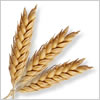 Australia: Western Australian barley growers likely to be hit hardest as a result of coronavirus
Australia: Western Australian barley growers likely to be hit hardest as a result of coronavirus
Western Australian barley growers will likely be the hardest hit in the country as a result of coronavirus, according to a report from the Australian Export Grain Innovation Centre (AEGIC).
The study, which was released on February 10, also found that the coronavirus will much more severely affect WA farmers than the SARS outbreak of the early 2000s.
AEGIC chief economist Ross Kingwell said infection rates to date suggest the coronavirus outbreak is a more serious health threat than the SARS epidemic.
"The global cost of the SARS was an estimated US$40 billion (A$59.7 bln), it infected 8098 people with 774 deaths in at least 17 countries," professor Kingwell said.
"As of February 10, 2020, 40,171 confirmed cases of coronavirus infection and 908 deaths were reported.
"Coronavirus is an economically much more serious set of potential outcomes for WA farmers."
Professor Kingwell said the threat to WA barley growers was potentially the severe as the State is the nation's major source of barley exported to China - and which is by far the main grain exported from Australia to China.
"When we combine what's happening in China with the ongoing effect of the African swine fever epidemic, it's causing a marked reduction in feed demand in China," professor Kingwell said.
"WA is a major export source of barley that goes into both the malt that is beer producing and the animal feed market in China, because of that WA farmers are probably going to have a lot of downward price pressure on their barley prices.
"There was a lot less beer drunk over Chinese New Year, so there was less run down of beer stocks which will have negative spillover effects on barley prices in the medium term."
Unlike barley, the story for wheat farmers in WA is more positive as the wheat which is exported to China is used to make noodles which are not discretionary expenditure like beer.
"Noodles are a staple and you don't see much change in noodle consumption," professor Kingwell said.
"In fact what might happen is an increase in consumption of staples because people aren't going out and are returning to more staple dishes such as noodles.
"The demand for wheat should remain strong and we haven't seen international wheat prices decline by anywhere as much as we've seen declines in feed grain prices."
If anything, professor Kingwell believes that because wheat is sold in US dollars, if the Aussie dollar keeps depreciating further, then WA wheat farmers might actually benefit from getting higher on-farm prices.
Zurück
E-malt.com, the global information source for the brewing and malting industry professionals. The bi-weekly E-malt.com Newsletters feature latest industry news, statistics in graphs and tables, world barley and malt prices, and other relevant information. Click here to get full access to E-malt.com. If you are a Castle Malting client, you can get free access to E-malt.com website and publications. Contact us for more information at marketing@castlemalting.com .






